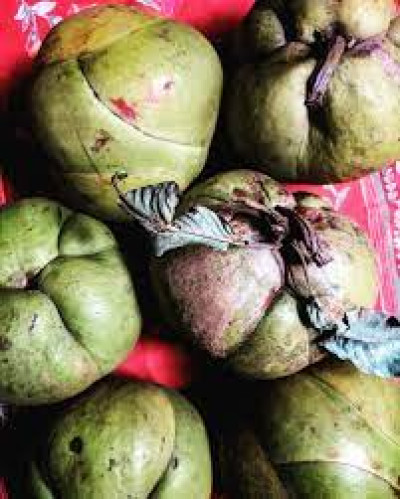What Is Outenga In Assam? Health Benefits And Traditional Assamese Cooking Methods



Rich in Vitamin C: Boosts immunity and skin health.
Antioxidant Properties: Helps protect cells from damage.
Digestive Aid: Known to improve digestion and appetite.
Low in Calories: Ideal for healthy diets and weight management.
Outenga holds a special place in Assamese households where it is commonly used as a souring agent in curries and chutneys. Its unique flavor balances rich and spicy foods, making it a beloved ingredient in the regional cuisine.
Ingredients:
1-2 medium-sized Outenga (elephant apples), cleaned and cut into pieces
1 cup fish or vegetables (optional)
1 medium potato or tomato (optional, diced)
2 tablespoons mustard oil
2 green chilies (slit)
Salt to taste
Water as needed
Method:
Heat mustard oil in a pan and sauté green chilies.
Add fish or vegetables and cook for a few minutes.
Add potatoes or tomatoes and cook until slightly tender.
Add Outenga pieces and salt, stir well.
Pour in water to cover the ingredients and simmer until the Outenga softens and flavors blend.
Serve hot with steamed rice for a tangy and flavorful Assamese meal.
Outenga fish curry – a classic Assamese delicacy.
Outenga mixed vegetable stew – a vegetarian favorite for its tangy flavor.
Outenga is cherished for its unique taste and health benefits, making it an essential ingredient in Assam’s culinary heritage.